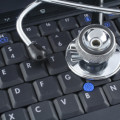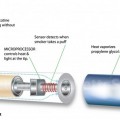It is great to know that this year marked considerable innovations in technology. The health industry became a recipient of great strides in technology. The exciting innovations will ultimately drive health care into a new era, a new level if you may. Surely the erstwhile slow-paced technology has become more agile and flexible and it will improve how we get fit and consult our doctors tomorrow.

Medical Innovations in 2013
We have heard about electronic cigarettes and how it can replace real cigarettes for a cheaper price and provide safer and healthier alternative to smoking. But have you heard about electronic aspirin? It turns out that the classic aspirin that some of us take to ease the pain away has an electronic version. If you are suffering from migraine often, you are faced with great pain and even greater levels of anxiety and stress. Electronic aspirin is actually the street name of an implanted device that is designed to stop sphenopalatine ganglion reaction that can cause a nasty headache. The device is designed to block the pain-causing neurotransmitters thus killing the pain.
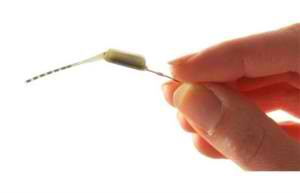
Electronic Aspirin
Blood glucose tests are far from being fun. How would you like it if you get poked to draw blood to test for blood glucose? If you are a diabetic you can surely relate on this one. The days of getting pricked to draw blood are ending. Scientists have developed a patch that would painlessly draw blood samples to be tested for blood glucose. Echo Therapeutics is replacing the prick with a patch that has a biosensor that sends information. The device is like a toothbrush that would scrape some skin and read blood analytes. The device will trigger an alarm if the blood sugar levels are too high.
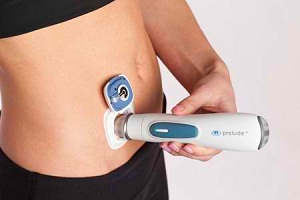
Needle-free Blood Glucose Tester
Microchip modeling will eventually replace the use of animals for testing. This would mean more accurate and more effective medicines that will treat human diseases. It will also spare the lives of a number of animals including livestock that are sacrificed in the name of science and medicine. The microchips have been designed to emulate some human body parts and organs. The microchip will resemble a human tissue and scientists can observe how a specific treatment will impact human health and improve therapy.
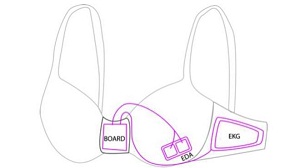
Smart Bra by Microsoft
Microsoft was recently quoted by news organizations to be developing a bra. This smart bra would have sensors that would detect the mood. The bra is actually measuring stress and even detects anxiety symptoms. The information is being sent to a smartphone or any kind of device with a final motive of telling the wearer to slow down on emotional eating. Emotional eating causes obesity in stressed people. Some stressed individuals often would turn to compulsive eating to cope with stress. The bra will tell the woman to go easy or else there would be health consequences.
Skin printers
3D printers have fast become ubiquitous and soon people that need skin grafting may no longer have to give up skin from other parts of the body to patch up other parts. Soon, printers will have the ability to come up with synthetic skin that burn patients may need. Skin disease patients can also get some relief from this technology. Health printers may also be able to print body parts other than the skin. There is a company that has successfully printed blood vessels and even cardiac tissues that beat like a real heart.
Surgeon-less operating rooms
Someday, you will have robots performing surgery on you. Just like flying a drone—soon surgeons that are located in one part of the country can do surgery on a person miles away. This is an impactful change that will surely redefine how people in the health industry carry out their work. A specialist can perform surgery on a person say in India while the doctor is in the Netherlands. All these are possible soon because of technology that was developed for a video game.
The otherwise disruptive technology will be impacting a lot of people for years to come. Hopefully the impact will be for the better. As technology influences health and health care, it is time to get to know some of these innovations. The technologies are bound to offer cheaper rates of health care and even hasten the delivery of health care services for all.


 (6 votes, average: 4.17 out of 5)
(6 votes, average: 4.17 out of 5)







